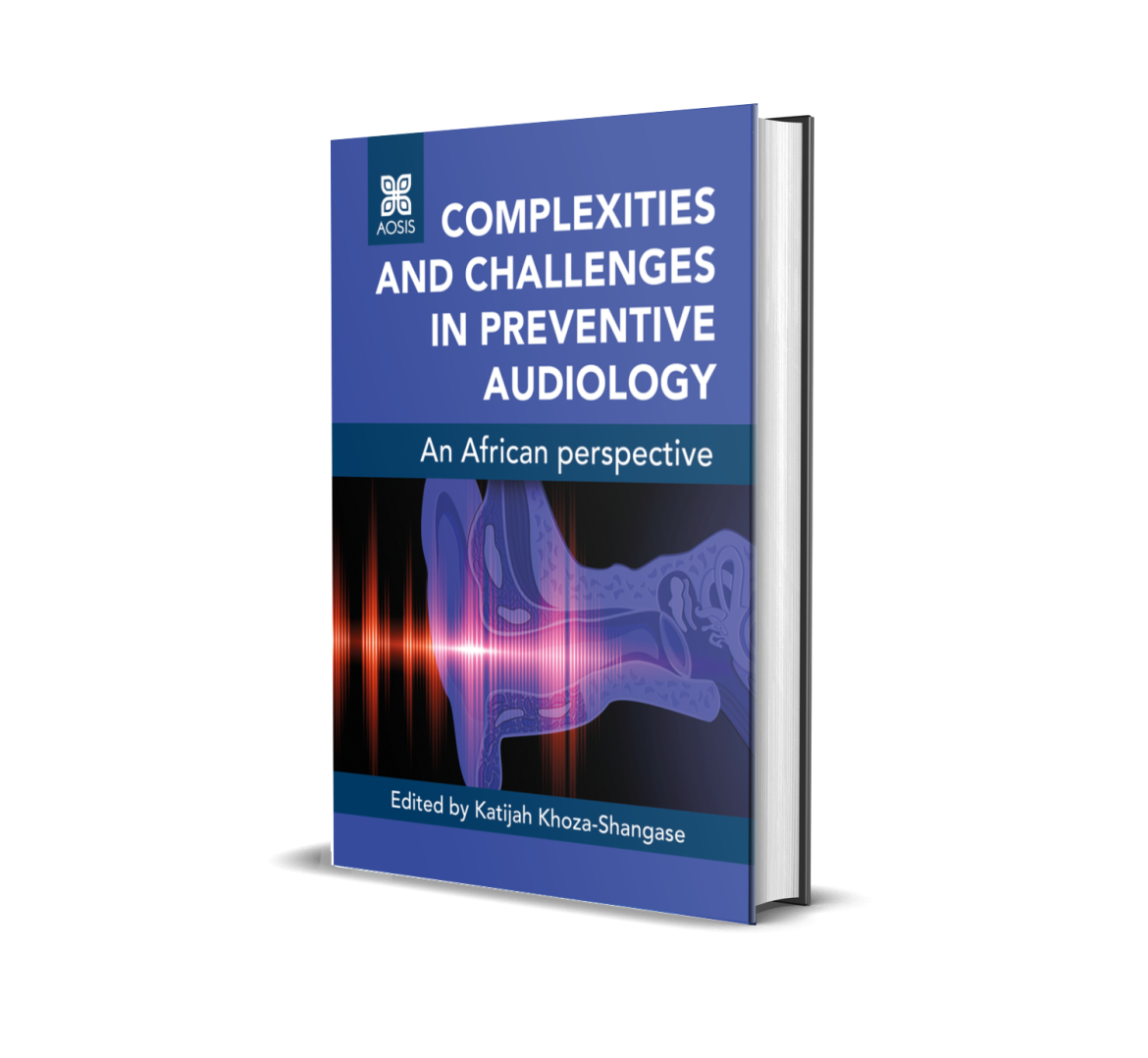Complexities and challenges in preventive audiology: An African perspective is an open access book published by AOSIS Scholarly Books.
The success of any preventive healthcare programme is reliant on a functional healthcare system. Within this system of care, healthcare professionals, including audiologists, can only practice safely and effectively if they possess an appreciation of the complexities and challenges that exist in that context. Where healthcare professionals have such awareness that aids them to recognise opportunities for errors that can cause patients harm and where they take steps to prevent these mistakes is where preventive audiology is positioned.
This edited book, Complexities and Challenges in Preventive Audiology: An African Perspective, is a sequel to another book by the current editor titled Preventive Audiology: An African Perspective. While in the process of editing that book, the editor identified that a lacuna of contextually relevant collation of evidence on complexities and challenges faced by the field of audiology within the African context in implementing preventive audiology existed. The goal of this book is to delve into these complexities and challenges for various key areas in audiology. All chapters deliberate on evidence-based perspectives grounded in the African context, with deliberate and preferential reliance on contemporary locally relevant evidence that allows for accurate reflection of current complexities and challenges in ear and hearing care delivery within the African context.
Contributors were encouraged to be as comprehensive as possible in their review of the literature within the African context, where available. Complexities brought about by context, such as cultural and linguistic diversity as well as traditional and alternative healthcare, on preventive audiology within the South African context, are also covered in this book. As each chapter explores prevailing complexities and challenges, potential solutions and recommendations for all challenges identified are also offered, having carefully and deliberately engaged with local evidence, local context, and local policies and regulations to ensure an Afrocentric contribution to the world of evidence. All chapters in the book have a goal of ensuring that increased efforts are directed towards the provision of clinical services that are driven through best practice by contextually relevant and responsive evidence.
Copyright (c) 2022 Katijah Khoza-Shangase (Volume editor)
This book is a well-written piece. The theme presented is necessary, especially in a context with competing health needs and barriers to some services. There are many valid challenges presented, and all have a detrimental effect on health systems and service delivery. I commend the authors for emphasising the role of government within audiology services as they are not prioritised, even though hearing loss in a community has a negative impact on the country’s economy. The authors are encouraged to be advocates for hearing loss and to involve higher levels of government in prevention of hearing loss and its adverse effects on quality of life. Our nation has a long way to go, and we need initiatives like this that are supported by evidence.
Dr Nondumiso A. Gina, Department of Audiology, Faculty of Health Sciences, University of KwaZulu-Natal, Durban, South Africa

